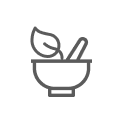The world is becoming modernized every day, so do we. The introduction of advanced technologies changed people’s social attitudes towards nightlife. As a result, many people’s sleeping habits and patterns are disrupted. Sleeping less is now considered a fashionable habit among adults, teenagers, and even children. We can argue that society has failed to recognize the importance of sleep. A good night's sleep is necessary for the body's hormone regulation and glucose metabolism to function properly (6). Similarly, it is crucial for the body to repair, feel rejuvenated, maintain the immune system, and boost creativity & concentration (9)
It has been reported that individuals with unhealthy sleep routines, end up facing side effects like sleep deprivation, poor concentration, mood swings, loss of appetite, weak immune system, laziness, and feeling grogginess throughout the day. Moreover, studies have also shown that lack of sleep or poor sleep quality is more likely to increase the risk of developing health issues like cardiovascular diseases, obesity, diabetes, high blood pressure, and depression (10).
Mechanism of sleep

Sleep is divided into two categories: Rapid eye movement (REM) and non-rapid eye movement (NREM). NREM consists of several stages from 1-3 (stage 1 light sleep, stage 2 onset sleep, and stage 3 deep sleep). Alternatively, REM has only one stage that lasts about 90 minutes. This is the stage where most of the dreams occur (9).
The younger and older adults usually require an average of 7-8 hours of proper sleep every night. This duration of sleep changes with age. The younger you are, the longer you sleep. As we grow old this duration reduces. It is believed that we all live according to the circadian rhythm. Circadian rhythm is a natural internal process in the body that regulates cognition, metabolism, sleep-wake cycle, and other functions on a regular 24-hour basis and repeats every day. It is most likely said to be our body’s daily routine. The part of the central nervous system (CNS) called the hypothalamus keeps track of light, dark, physical activity, and mealtime schedules. When the hypothalamus senses the darkness, it will send a signal to the pineal gland (in the brain) to produce a hormone called melatonin, a sleep-inducing hormone. The melatonin levels are usually higher during night times which makes us sleepy. On the other hand, adenosine hormone increases during daytime in the brain that controls wakefulness. These hormone levels go down during sleep. It is affirmed that women have a shorter circadian rhythm than men; they go to sleep earlier and wake up earlier than men. Any interruptions in the circadian rhythm tend to affect sleep patterns and cause frequent waking up in the middle of the sleep (2).
However, sleep can also be altered by external factors. A study investigated the factors contributing to poor sleep experiences in university students. The factors analyzed include physical environmental factors (tobacco, noise, air quality, room condition), social factors (family problems), and psychological factors (stress, anxiety, depression, tension, sadness, confusion, negative mood). The majority of respondents in the survey declared that psychological factors contributed to insufficient sleep and poor sleep quality (1). Sometimes, people also suffer poor sleeping experiences from jet lag and night shift work.
Common practices
The usual practices followed to improve sleep includes:
- Avoid using mobile phones and laptops before bedtime
- Avoid intake of caffeinated beverages close to bedtime
- Avoid eating large portions late in the evening
- Practice a sleep routine that works best for you
- Set up a good sleep environment
- Exercise regularly
- Keep away from disturbances
The above-mentioned are a few common measures followed by people, in general (2, 10). These practices may work differently in each individual and may not be successful all the time. But these practices along with Grand Health®’s ingredients may work best for most of us. Grand Health®’s product contains all-natural ingredients that are scientifically proven to reduce stress, promote relaxation, improve sleep quality, and induce deep sleep.
A good night’s sleep by Grand Health® products
Like food and water, sleep is an essential part of our life. Grand Health® SleepZZZ and Sleep ZZZ II are two excellent products that work well with the natural sleep hormones and help you fall asleep naturally. Let us discuss a brief overview of each product and its benefits.

The Grand Health® SleepZZZ product has an extraordinary combination of medicinal ingredients such as Suntheanine® L-Theanine (called L-Theanine), 5-HTP (Griffonia simplicifolia) (Seed), and Melatonin. All these ingredients are directly associated with improving the quality of sleep. L-Theanine is an amino acid predominantly present in green tea. Studies suggest that 50-200mg of this amino acid could promote relaxation. They are also involved in other physiological activities such as lowering blood pressure, improving learning ability, and inducing deep sleep (3, 12). Meanwhile, L-5-hydroxytryptophan (5-HTP) is produced from the amino acid “tryptophan'' in plants or by synthetic methods. After a series of chemical reactions, 5-HTP yields hormones called “serotonin” and “melatonin” that are involved in promoting psychological effects like mood, cognition, learning, memory, & a role in the sleep-wake cycle. 5-HTP and melatonin are commonly used in drugs and other dietary supplements as sleep aids (8,7).

Grand Health® Sleep ZZZ II is composed of several medicinal herbs such as Zao, Fu Ling, Rehmannia, Passionflower, Astragalus, Licorice, He Shou Wu, Reishi, and an amino acid L-Tryptophan. These herbs are rich in certain biologically active compounds like alkaloids and flavonoids that binds to GABA (gamma-aminobutyric acid), a calming neurotransmitter in CNS that helps to disengage our brain activity from wakefulness to sleepiness. Most of these herbs have a long history in traditional Chinese medicine as a sedative and hypnotics (4, 11). Likewise, tryptophan is an essential amino acid and a precursor for hormones like “serotonin, melatonin, and nicotinamide”. As discussed previously, these hormones play an important role as sleep inducers in the sleep-wake cycle (5).
If you have sleep issues or wish to reset your circadian rhythm, the products listed above will be your excellsent choice. Both the products are made from natural, medicinal, and vegan ingredients that will make your nights peaceful. We believe that these chewy ones will hold a place in your dreams during this holiday season. For more information visit https://www.grand-health.com/.
References
- Altun, İ., Cınar, N., & Dede, C. (2012). The contributing factors to poor sleep experiences in according to the university students: A cross-sectional study. Journal of research in medical sciences: the official journal of Isfahan University of Medical Sciences, 17(6), 557.
- Hormone Health Network. “Sleep and Circadian Rhythm | Hormone Health Network. “Hormone.org, Endocrine Society, 12 December 2021, https://www.hormone.org/your-health-and-hormones/sleep-and-circadian-rhythm
- Juneja, L. R., Chu, D. C., Okubo, T., Nagato, Y., & Yokogoshi, H. (1999). L-theanine—a unique amino acid of green tea and its relaxation effect in humans. Trends in Food Science & Technology, 10(6-7), 199-204.
- Kim, C. S., Han, J. Y., Kim, S. H., Hong, J. T., & Oh, K. W. (2011). Herbs for the treatment of insomnia. Biomolecules & Therapeutics, 19(3), 274-281.
- Kokturk, O., & Kanbay, A. (2015). Tryptophan metabolism and sleep. In Tryptophan Metabolism: Implications for Biological Processes, Health and Disease (pp. 239-252). Humana Press, Cham.
- Leproult, R., & Van Cauter, E. (2010). Role of sleep and sleep loss in hormonal release and metabolism. Pediatric Neuroendocrinology, 17, 11-21.
- Maffei, M. E. (2021). 5-Hydroxytryptophan (5-HTP): Natural occurrence, analysis, biosynthesis, biotechnology, physiology and toxicology. International Journal of Molecular Sciences, 22(1), 181.
- National Center for complementary and Integrative Health. Melatonin: What We Need To Know. https://www.nccih.nih.gov/health/melatonin-what-you-need-to-know. Accessed December 14, 2021.
- National Institute of Neurological Disorders and Stroke. Brain basics: Understanding sleep.https://www.ninds.nih.gov/Disorders/Patient-Caregiver-Education/Understanding-Sleep. Accessed December 13, 2021.
- NIH National Institute on Aging (NIA). A Good Night’s Sleep. https://www.nia.nih.gov/health/good-nights-sleep. Accessed December 06, 2021.
- Singh, A., & Zhao, K. (2017). Treatment of insomnia with traditional Chinese herbal medicine. International review of neurobiology, 135, 97-115.
- Suntheanine®. What is Suntheanine®? https://www.suntheanine.com/what-is-suntheanine/. Accessed December 13, 2021.










